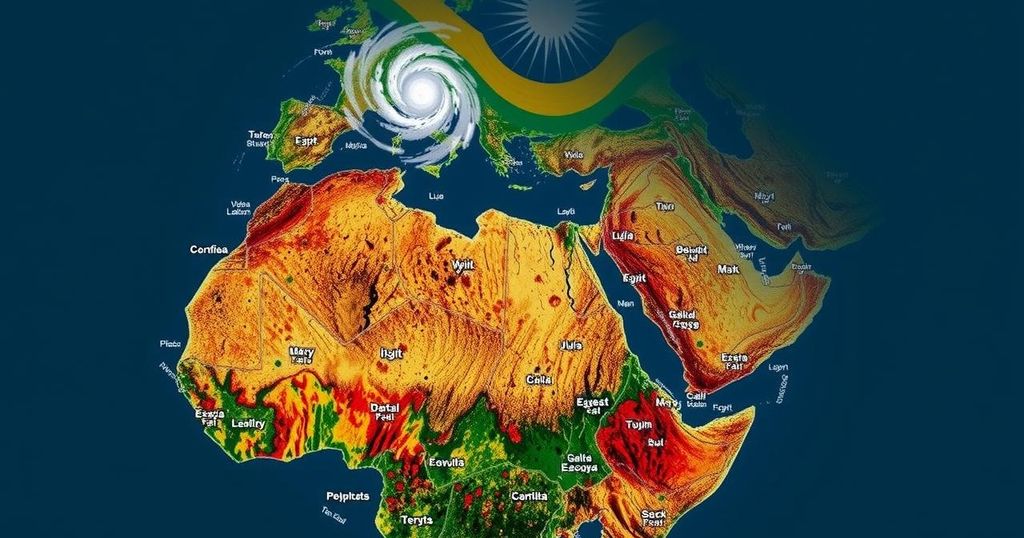The World Health Organization has certified Egypt as malaria-free, a remarkable milestone after a century-long battle against the disease. In Cuba, a tropical storm has caused widespread power outages, with the UN indicating readiness to provide aid. In Mozambique, two opposition figures were murdered, prompting calls for investigations and calm from the UN Secretary-General. Additionally, the WHO is responding to severe flooding in South Sudan, which has displaced thousands and worsened public health challenges, particularly concerning cholera and malaria.
In a series of significant global developments, the World Health Organization (WHO) has certified Egypt as malaria-free, reflecting a monumental achievement in the public health arena that caps a century-long endeavor to eradicate the disease from the nation, which has battled malaria since ancient times. WHO Director-General, Dr. Tedros Adhanom-Ghebreyesus, remarked on the historical importance of this certification, stating, “Malaria is as old as Egyptian civilization itself, but the disease that plagued pharaohs now belongs to its history and not its future.” This accomplishment positions Egypt among only 44 countries and one territory worldwide that have achieved such status, serving as an inspiration to neighboring nations in their efforts against malaria. Meanwhile, Cuba is grappling with a severe humanitarian crisis as a tropical storm wreaks havoc across the nation, resulting in mass power outages affecting around 10 million individuals. The UN Country Team has expressed readiness to assist Cuba in this time of need. Recent reports indicate systemic issues within Cuba’s power infrastructure, compounded by economic sanctions that have hindered the acquisition of necessary supplies for the energy sector. Amidst these ongoing struggles, UN Deputy Spokesperson, Mr. Farhan Haq, emphasized the challenges posed by the slow-moving storm, which threatens further flooding. In Mozambique, UN Secretary-General António Guterres has called for a swift investigation into the assassinations of two opposition figures amid electoral disputes, urging for calm among the populace. With tensions escalating following the contentious presidential elections, Guterres has reiterated the UN’s commitment to fostering peace and stability in the region. Lastly, the WHO is addressing the dire humanitarian crisis in South Sudan, where unprecedented flooding has displaced hundreds of thousands and overwhelmed vital infrastructure. The WHO has mobilized resources to support those affected, delivering emergency health kits aimed at combating rising health challenges, such as cholera and malaria, which have surged in prevalence due to the devastating environmental impacts. This highlights the critical intersection of public health and climate challenges faced by vulnerable nations.
These recent events illuminate critical issues in global health and humanitarian efforts. The certification of Egypt as malaria-free by the WHO represents a landmark public health victory, potentially guiding other nations in their eradication campaigns. Conversely, Cuba’s challenges reflect the interconnectedness of environmental science, economic policies, and health infrastructure. Meanwhile, the violence in Mozambique underscores the volatility surrounding electoral politics in many regions, necessitating support for justice and stability. Lastly, the flooding in South Sudan illustrates the profound impact of climate change on public health, particularly in nations already experiencing humanitarian crises.
In conclusion, the recent developments highlight the diverse challenges and achievements faced by countries across the globe. Egypt’s landmark certification as malaria-free stands as a beacon of success in public health, while Cuba’s struggle with a tropical storm and mass power outages calls for immediate international support. The tragic loss of opposition figures in Mozambique underscores the fragility of political stability, and South Sudan’s flooding crisis reveals the urgent need for humanitarian assistance amidst health concerns. Together, these narratives weave a complex tapestry of contemporary global challenges, underscoring the vital role of international cooperation and support in navigating them.
Original Source: news.un.org






